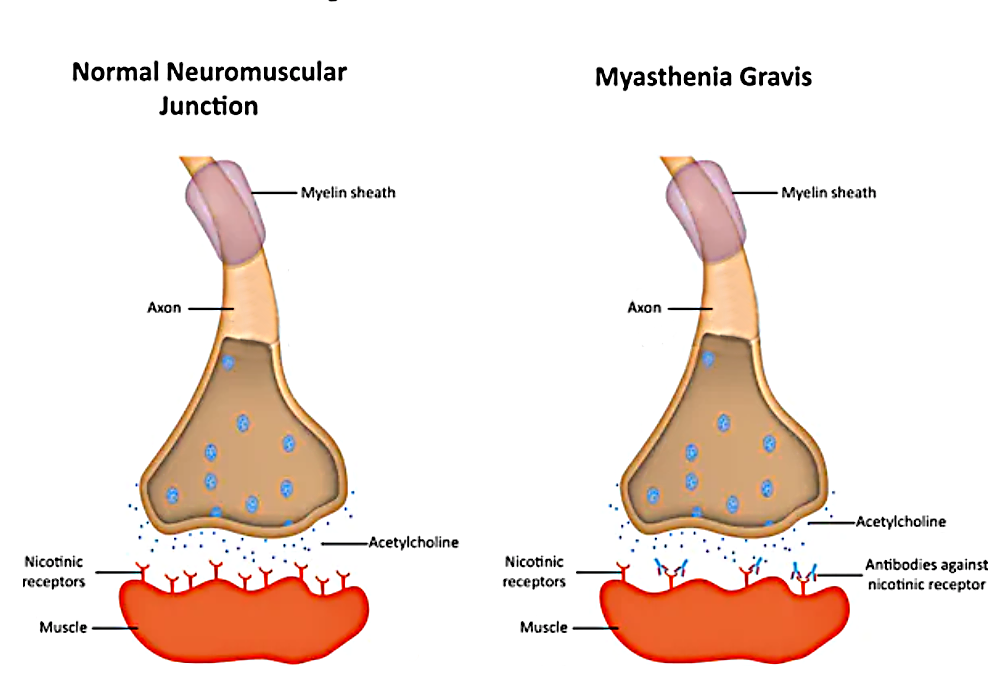 Myasthenia gravis (MG) is an acquired autoimmune disease. The main symptom is the weakness of skeletal muscle contraction caused by neuromuscular transmission disorders. Neuromuscular junction postsynaptic membrane acetylcholine receptor is attacked by autoantibodies. When the function of this important receptor is abnormal, it will directly affect the normal conduction and movement of the neuromuscular. At first, the patient is prone to fatigue, after activities feel more tired, and can be relieved after rest. It can be manifested as drooping eyelids, difficulty swallowing, weak speech, and even breathing difficulties. Myasthenia gravis is mainly treated with drugs, and surgery is required in some cases.
Myasthenia gravis (MG) is an acquired autoimmune disease. The main symptom is the weakness of skeletal muscle contraction caused by neuromuscular transmission disorders. Neuromuscular junction postsynaptic membrane acetylcholine receptor is attacked by autoantibodies. When the function of this important receptor is abnormal, it will directly affect the normal conduction and movement of the neuromuscular. At first, the patient is prone to fatigue, after activities feel more tired, and can be relieved after rest. It can be manifested as drooping eyelids, difficulty swallowing, weak speech, and even breathing difficulties. Myasthenia gravis is mainly treated with drugs, and surgery is required in some cases.
The diagnosis of myasthenia gravis is more complicated and needs a variety of examination methods to confirm the diagnosis. There are four commonly used tests:
Creative Biogene's products are mainly enzyme-linked immunoassay kits developed for acetylcholine receptor antibodies, serum muscle-specific kinase antibody and other specific antibodies against myasthenia gravis. Antibody detection is necessary for the diagnosis and treatment of myasthenia gravis. Our products have excellent performance in the auxiliary diagnosis of this disease, which will help you to carry out your research smoothly.
Creative Biogene focuses on the field of diagnostic reagents for myasthenia gravis. It is sincerely looking forward to cooperating with you and providing you the best quality product with all of our hearts! We look forward to working with you for your cooperation.
Please contact us for more details.
Reference
| Cat# | Product Name | Product Type | Inquiry |
|---|---|---|---|
| C0562T | Acetylcholine Receptor-Ab (ARAb) RRA | Test kit | Inquiry |
| C0563T | Acetylcholine Receptor-Ab (ARAb) RRA | Test kit | Inquiry |
| C0564T | MuSK-Ab ELISA | Test kit | Inquiry |
| C0565T | Acetylcholine Receptor-Ab (ARAb) Blocking RIA | Test kit | Inquiry |
Copyright © 2026 Creative Biogene. All rights reserved.